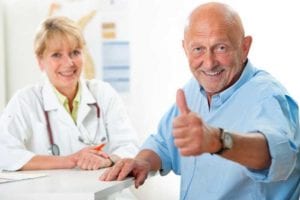
CHARLOTTESVILLE, VA – During multidisciplinary rounds on a cardiology unit at the University of Virginia Medical Center (UVAMC), a glimmer of hope was revealed as the health care team was discussing a patient’s past medical history. Before stepping inside the patient’s room, an intern mentioned that the patient’s hemoglobin A1C (HgA1C), a marker of diabetes control, was 14.4% in December of 2015. Providers glanced from one to another as a despondent intern scoffed, “I’ve seen worse.”
 To everyone’s astonishment, the attending physician on service disclosed that he himself had gone into the patient’s medical chart to order a new HgA1C the day before. As the responsible intern looked up the new laboratory information, most of the team was starting to daze off until Dr. Johnson stammered, “What?
To everyone’s astonishment, the attending physician on service disclosed that he himself had gone into the patient’s medical chart to order a new HgA1C the day before. As the responsible intern looked up the new laboratory information, most of the team was starting to daze off until Dr. Johnson stammered, “What?
Wait, this can’t be right. Epic is showing a new HgA1C of 5.2%.” After marveling over the patient’s success at controlling his type 2 diabetes mellitus (T2DM) over a mere three-month period of time, the team started to brainstorm how an American patient managed to accomplish this rarely before seen feat. Left perplexed, the group of practitioners went inside the patient’s room to inquire about the observed medical phenomenon. The patient succinctly uttered, “Once I got diagnosed with tha sugars, I just changed my diet. I stopped taking insulin about a month ago.”
Though just a single case report, this exceptionally uncommon display of responsibility for one’s own health provides many pessimistic health care workers at the UVAMC with hope. Future studies will certainly need to be done to validate the novel hypothesis that diet can reverse T2DM over medication alone.